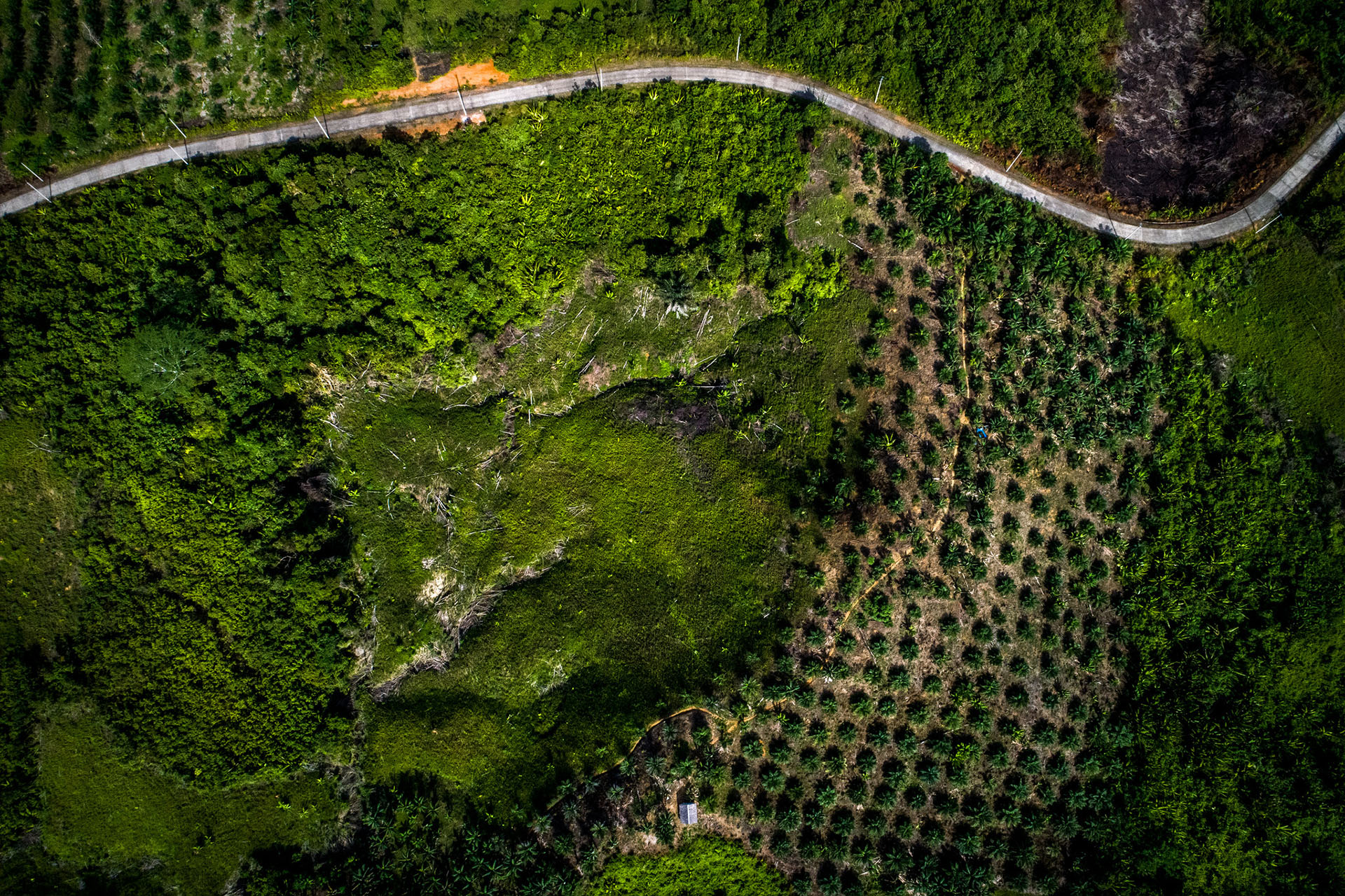Aerial views of paddy field and palm oil plantation in East Kalimantan, Indonesia. Photo by Nanang Sujana/CIFOR
Over the past few years, the UN-REDD Programme has scaled up its activities on finance and private-sector engagement. The rationale behind this is that if countries are going to successfully reduce and remove emissions, it is critical to know which sectors are the main drivers of deforestation and forest degradation in order to implement the right measures to reverse these negative trends.
In Indonesia, for example, there are more than two million hectares of ageing palm oil plantations managed by smallholder farmers. Once these yields start decreasing and the plantations have become exhausted, farmers may either burn additional forests to make way for new palm plantations, or remove the aging palm trees and replant new ones on the existing arable land.
These costly actions will not come from public (domestic or international) funding alone. Innovative schemes that include both public funding and finance, as well as private capital, are therefore necessary to help make the transition to sustainable land use management, in which the production of crops like cocoa, rubber, palm, beef and soy become decoupled from deforestation (as well as from associated emissions and biodiversity loss).
UN Environment set up the Tropical Landscapes Finance Facility (TLFF) together with BNP Paribas, ADM Capital and the World Agroforestry Centre (ICRAF) as a response. This initiative aims to bring long-term financing to smallholder farmers to modify their agricultural practices by stopping further clearing of forests, and instead, protecting the remaining areas, while also receiving support to scale up the yield of specific commodities to increase their incomes.
Earlier this year, BNP Paribas – under the TLFF banner – launched an inaugural ‘landscape bond’ of USD 95 million whereby the capital is directed towards a rubber company called Royal Lestari Utama (‘RLU’), a joint venture between Michelin and Barito Pacific. The main income-generating activity underpinning this bond is the production and sale of rubber from the extended plantation. The project incorporates extensive social and environmental objectives and safeguards in partnership with WWF. Planted areas will serve as a buffer zone to protect the threatened national park Bukit Tiga Puluh from encroachment - one of the last places in Indonesia where elephants, tigers and orangutans co-exist.
Roughly 50 percent of the concession area will be set aside for community partnership programmes and conservation. The borrower and company in question, PT Royal Lestari Utuma (RLU) – an Indonesian joint venture between France’s Michelin and Indonesia’s Barito Pacific Group – will employ and train several thousands of employees on its plantations providing stable incomes, while also creating value for local farmers through technical assistance on rubber tapping, and protecting valuable tropical rainforests on the plantation (i.e. high-conservation value and high-carbon stock forests).
However, with the issuance of the recent bond, only about 66 percent of the project has been financed. The last - and crucial part - of the project’s capital raise is now underway. Following a call for proposals by the Private Sector Facility of the Green Climate Fund – under the ‘Pitch for the Planet’ category – a submission by UN Environment and BNP Paribas was shortlisted. This just might pave the way for raising the remaining capital and closing this innovative landscape-scale project.
While the scale of the project is noteworthy – with around 88,000 hectares in Sumatra and East Kalimantan and a total capital need of around USD 350 million – impact at national scale can only be achieved if more agribusinesses and financiers are following suit by replicating similar types of financing structures and if governments are successfully able to roll out policies and measures to halt deforestation. This includes providing incentives to businesses that are willing to ‘walk-the-talk’, but are unable to cover the full costs of the transition to sustainable land use without accessing public capital.
Following the inaugural transaction and a growing pipeline in Indonesia – and as part of an agreement with UN Environment to structure projects amounting to USD 10 billion by 2025 – BNP Paribas is now looking at other structures, including the Sustainable India Finance Facility (SIFF) and exploring possibilities for similar vehicles in other countries to counter the ongoing trends whereby commodity production at present almost de-facto leads to deforestation. This year’s climate negotiations at the COP24 offers an ideal opportunity for more businesses in the forestry, agricultural and finance sectors to come forward and change their business models to spur urgent, positive change for our planet.



